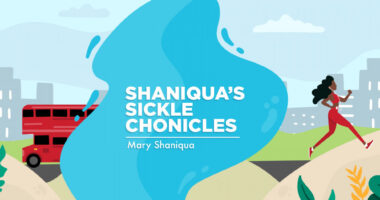Let’s Respect That ‘Healthy’ Means Something Different to Everyone

There is no single weight, shape, size, age, or ability that dictates healthiness — no single standard. Our bodies and minds are built uniquely, so we must embrace our differences to avoid making unhealthy assumptions and comparisons.
Many combined factors are used to assess health: nutrition, time spent active, time spent sleeping, and cholesterol levels, among others. However, we often instead resort to judgmental assumptions — the easy route — by associating healthiness with how someone looks.
For example, we tend to assume that bigger people are unhealthier than smaller people. But that isn’t always the case. Measures such as the body mass index (BMI), which indicates approximate body fat levels, can neglect genetic differences and don’t factor in the methods of how a person might have arrived at their current weight. For example, an individual with high levels of muscle mass may be characterized as obese so their idea of healthiness is not an average BMI but rather the ability to run a 5K or lift the heaviest weight in the gym. Meanwhile, for all we know, a person with a “healthy BMI” might have starved themself to get to their current weight.
Let’s hit closer to home: When looking at a man with sickle cell who has an average BMI, one might assume he’s healthy, unaware of the invisible symptoms raging within his body. Even within the sickle cell community, we each have different needs and symptom manifestations, so regardless of our familiarity with the disease, we can’t judge each other.
Some with sickle cell may have a picture of health that’s most focused on liberating themselves from fatigue. My own idea of healthiness is the ability to be pain free for as long as possible and to maximize mobility as I grow older. To achieve this goal, I focus on staying hydrated, getting enough rest, and using my medication consistently. I have very specific needs that others may not have so I have to adjust my idea of health accordingly.
“Healthy” is not a one-size-fits-all term. It’s essential to respecting others’ emotional and physical health that we avoid judging based on single factors, regardless of how apparent they seem. We all must do what is best for our own bodies, ideally freed from the nonexpert opinions of others.
What does being healthy look like to you? I’d love to hear in the comments.
***
Note: Sickle Cell Disease News is strictly a news and information website about the disease. It does not provide medical advice, diagnosis, or treatment. This content is not intended to be a substitute for professional medical advice, diagnosis, or treatment. Always seek the advice of your physician or other qualified health provider with any questions you may have regarding a medical condition. Never disregard professional medical advice or delay in seeking it because of something you have read on this website. The opinions expressed in this column are not those of Sickle Cell Disease News or its parent company, Bionews, and are intended to spark discussion about issues pertaining to sickle cell disease.







Leave a comment
Fill in the required fields to post. Your email address will not be published.